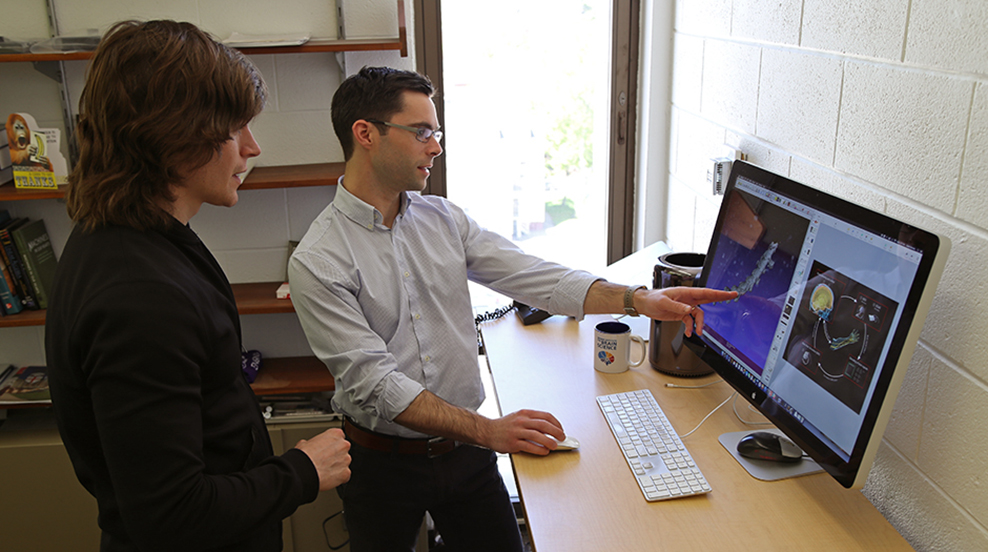
Assistant Professor David Borton (right) is the co-principal investigator on a $7.5 million, five-year grant from the National Institutes of Health.
Credit: Amy Simmons
PROVIDENCE, R.I. [Brown University] — Brown Assistant Professor of Engineering David Borton is the co-principal investigator on a $7.5 million, five-year grant from the National Institute of Neurological Disorders and Stroke, part of the National Institutes of Health, under the Brain Research through Advancing Innovative Neurotechnologies (BRAIN) Initiative. Led by Baylor University psychiatry and behavioral services department chair Dr. Wayne Goodman, the team will develop a new generation of deep-brain stimulation technology to help patients with difficult-to-treat obsessive compulsive disorder. Industry partner, Medtronic, will furnish state-of-the-art medical devices for the research project.
"We're exploring ways of making deep-brain simulation more adaptive and more responsive for people with neuropsychiatric disorders like OCD," Borton said. "In OCD, objects in the environment or a person's emotional state can trigger episodic compulsions and distress. What we want to do is detect those stress states and dynamically titrate stimulation at those times. Meanwhile, we want to be able to reduce stimulation when it's not needed in order to reduce side effects associated with treatment. While huge challenges remain, we think this is an exciting direction to transition deep-brain simulation into a responsive and specific therapy option."